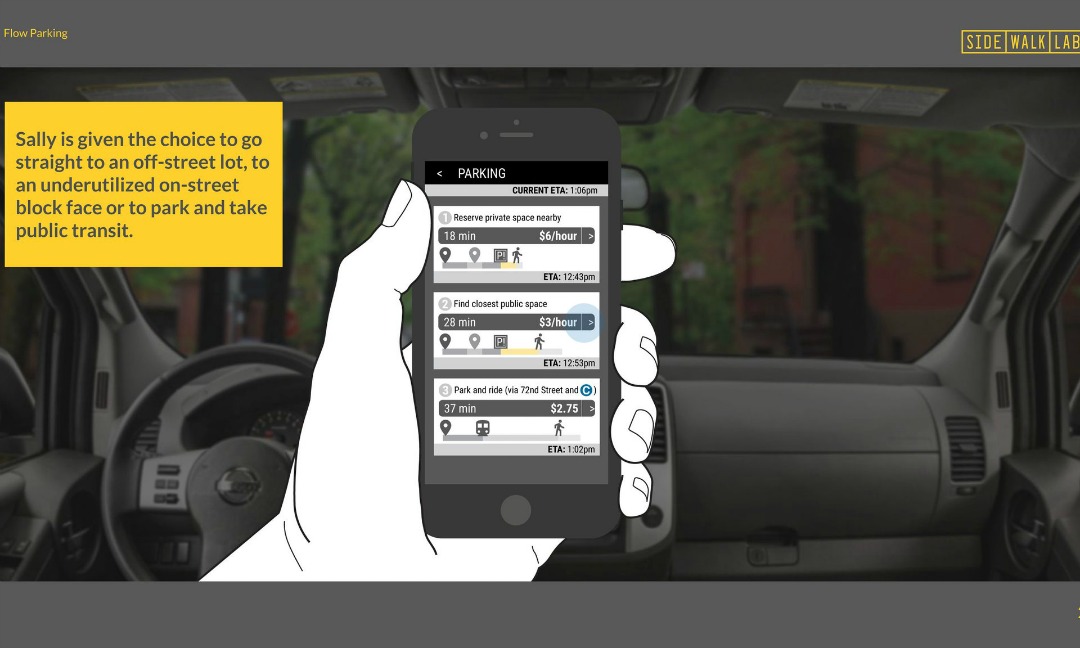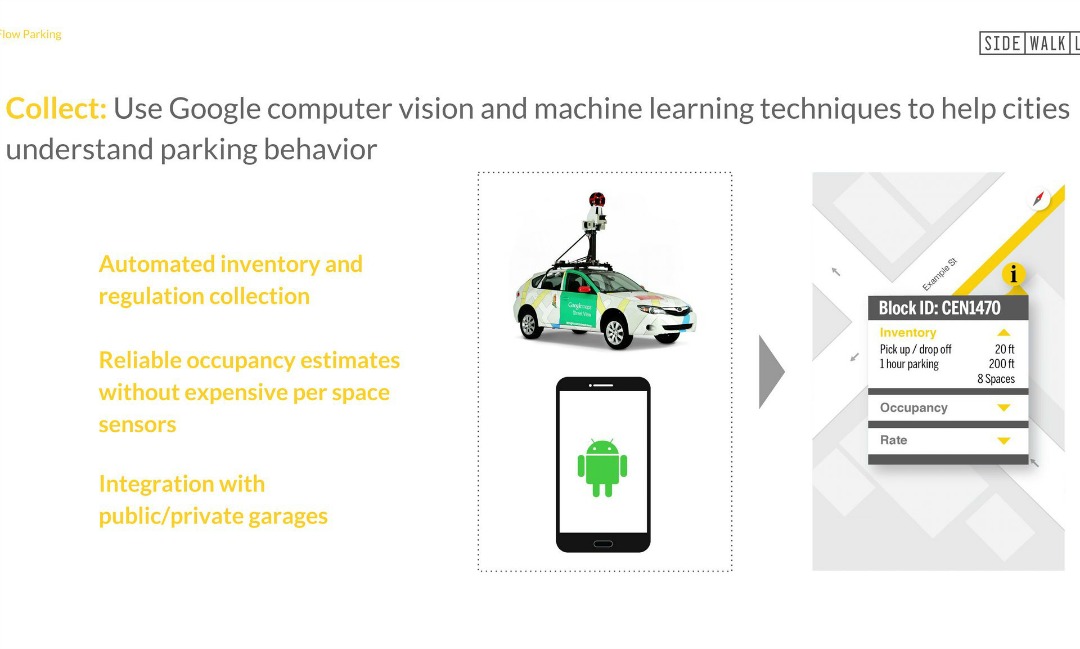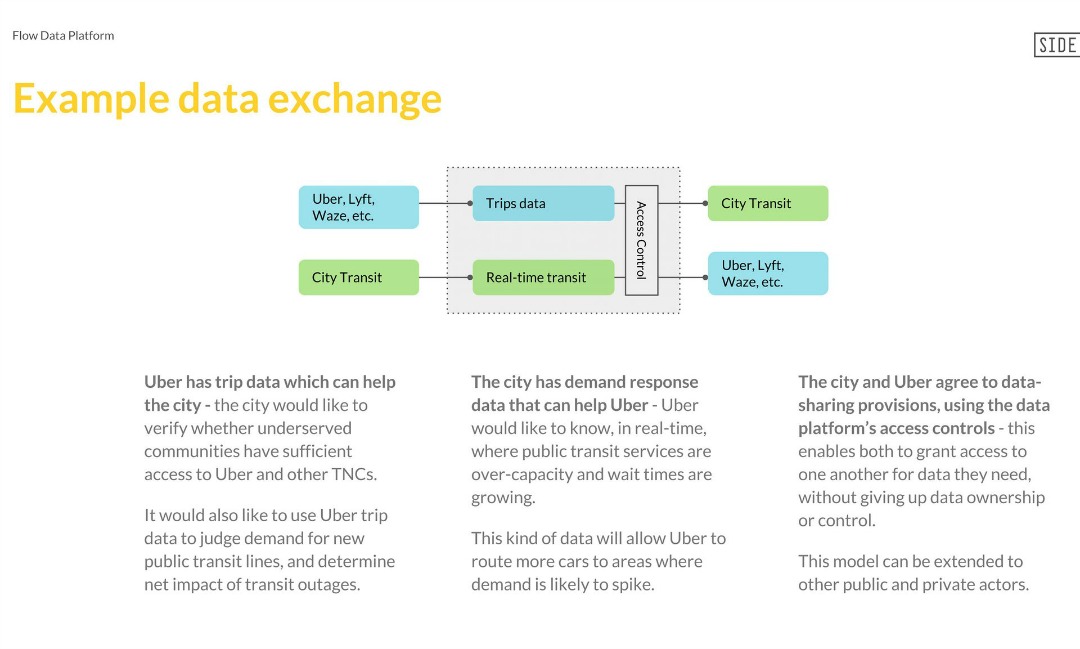Affiliate links on Android Authority may earn us a commission. Learn more.
This is how Google plans to take control of public transit and parking in the U.S.

Alphabet‘s “improved city living” company, Sidewalk Labs – the group behind the futuristic digital city story a while back – is already getting its feet wet in real-life situations. The Guardian has obtained documents and emails that detail a proposal made by Sidewalk Labs to the city of Columbus, Ohio. It essentially allows Google to assume control of the city’s public transport and parking system.

The information was obtained through public records laws and details an offer made by Sidewalk Labs to provide the city of Columbus with its cloud-based program called Flow for free. Flow would put the city’s public transit, public parking and transit subsidy program under the control of Google. Sidewalk Labs also extended the offer of 100 Wi-Fi kiosks, the same ones used in its NYC Wi-Fi project.
Flow applies Google’s expertise in mapping, machine learning and big data to thorny urban problems such as public parking.
Here’s what The Guardian says about Flow: “Flow applies Google’s expertise in mapping, machine learning and big data to thorny urban problems such as public parking. Numerous studies have found that 30% of traffic in cities is due to drivers seeking parking.” So not only would Flow help you find a parking space, it could also ease traffic congestion by up to a third.

Real-world field-testing
Sidewalk Labs needs full-scale environments in which to test out its technologies.
Field-testing technology like this is a large part of why Sidewalk Labs wants to build a city of its own. It needs full-scale environments in which to test out its technologies and theories on urban planning, traffic management, public transit and super-fast internet.
By tackling an existing problem in a real city, Sidewalk Labs will gain valuable insights into the unpredictability of real-world scenarios. As for how Flow will work in practice, here’s The Guardian‘s explanation in full:
Flow would use camera-equipped vehicles, like Google’s Street View cars, to count all the public parking spaces in a city and read roadside parking signs. It would then combine data from drivers using GoogleMaps with live information from city parking meters to estimate which spaces were still free. Arriving drivers would be directed to empty spots.
Other proposals
But Sidewalk Labs’ proposal isn’t just about getting you into a parking space more quickly. The emails and documents also detail a pitch to get businesses to temporarily rent out parking spaces otherwise reserved for employees or shoppers. There’s also a proposal for variable pricing based on demand (for example, higher prices on the weekends at sporting and recreation areas).

There’s plenty of other interesting tidbits in the paper trail too, including a contentious suggestion that transit subsidies for low-income residents can be used for ride-sharing services like Uber (which Google owns shares in). There’s also a recommendation that the city upgrade to Sidewalk’s mobile payments system and that private parking garages add their available spaces to the project’s parking list.
Google recommends that transit subsidies for low-income residents can be used for ride-sharing services like Uber.
The public transit system could also be revolutionized with the help of Google Maps. The plan outlines how Google Maps could be updated to include all public transit options as well as the means to pay for them. This would include trains, subways, taxis, buses, Uber, Lyft and even car- and bike-sharing services.
A resident would simply plugin a destination and be presented with all of the available transit options including the ability to buy public transit tickets as well as pay for taxis and other car services. This would not only be a massive convenience to all residents, it would also massively benefit Google itself.

Wrap up
This is perhaps the most problematic part of the pitch: just how much Google benefits. Naturally, the proposal prioritizes Google apps and services and comes with the stipulation that the data-sharing between partners would be with Google first and foremost. Google would also be the one to manage all of the payments, requiring everyone to accept Sidewalk’s mobile payment system and for the city’s transit subsidies budget to be handed over.
Ultimately this is little different than any other well-equipped company pitching a city to accept its way of tackling a problem. If Columbus agrees to the proposal, data-sharing will begin in August with dynamic parking changes taking effect in January 2017. Google’s vision for a shared mobility platform would then roll out in July 2017.
What do you think of Sidewalk’s proposals? Would you be happy to have Google run your city’s public transit and parking management?